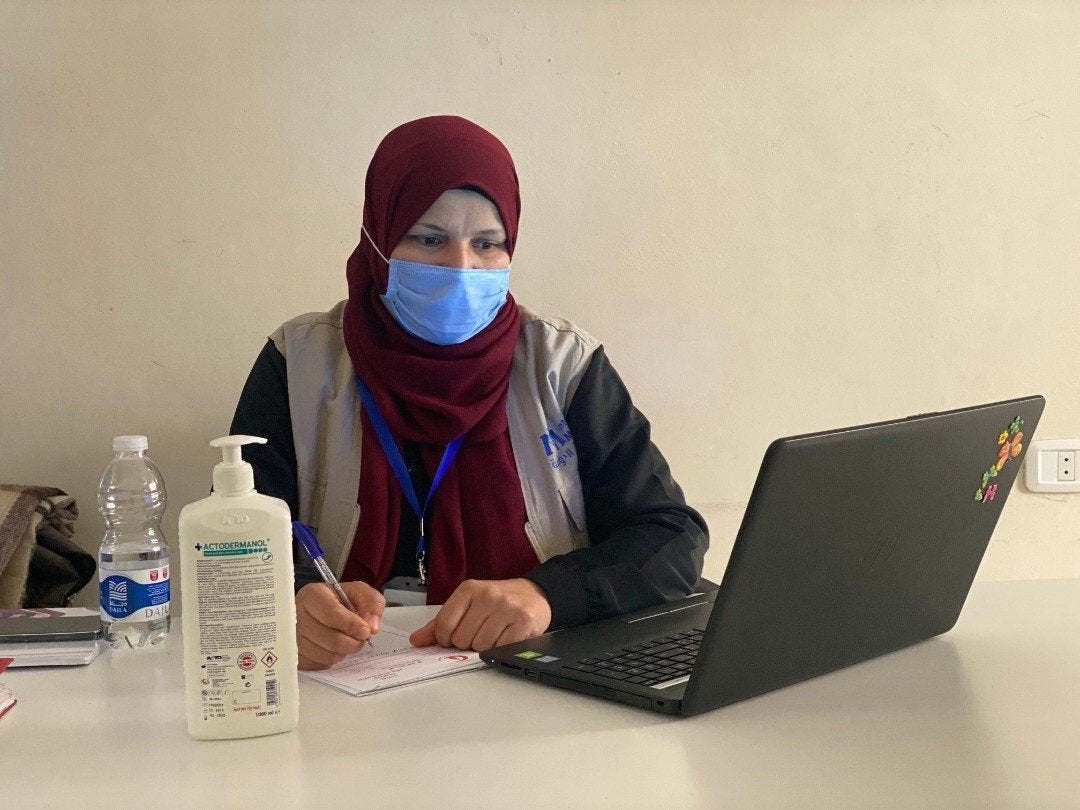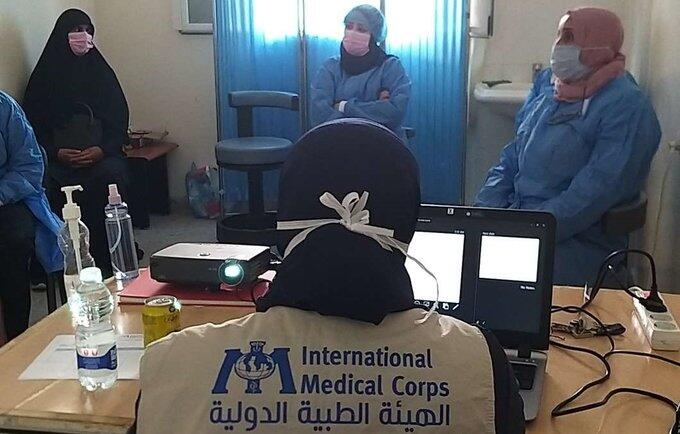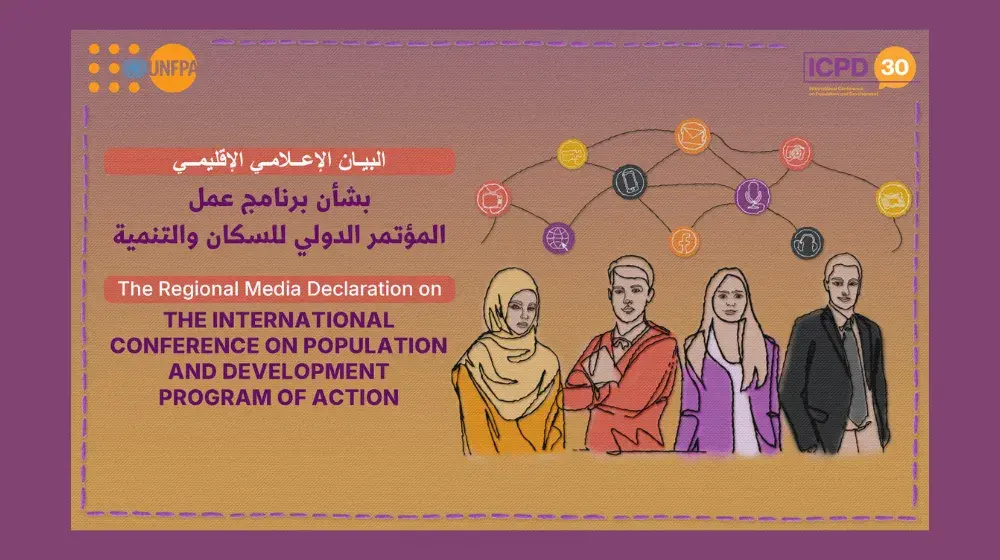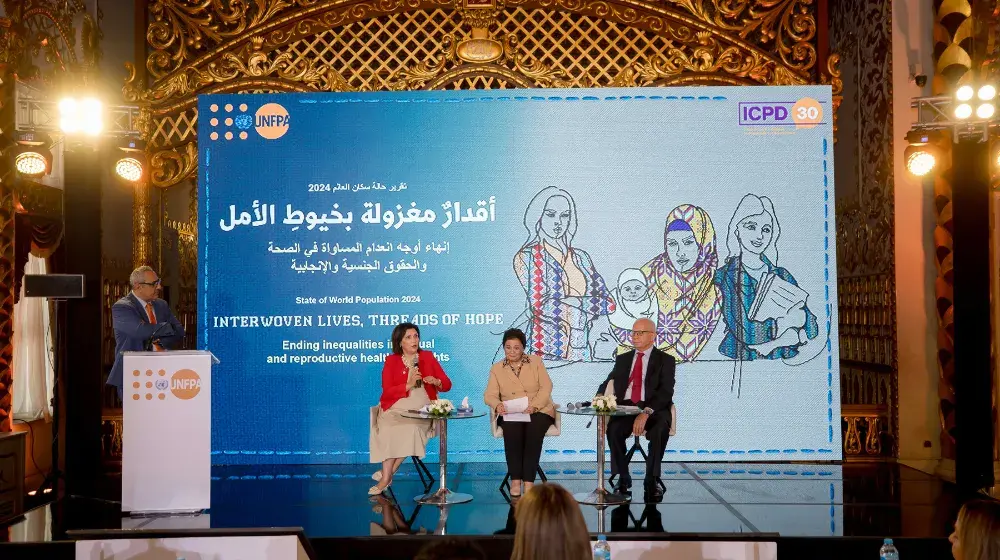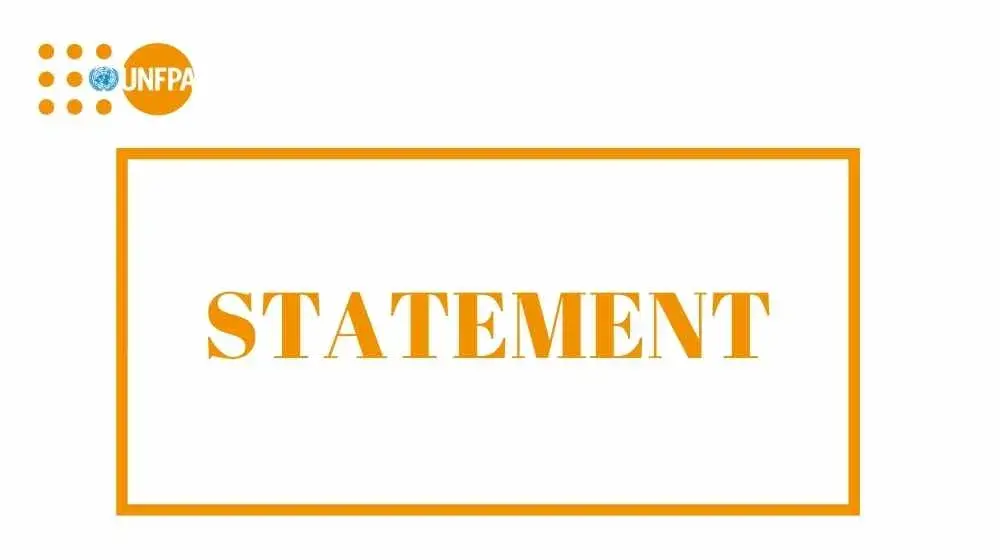“I came to Libya five years ago in the hope of finding a better future. However, surviving as a migrant and providing for yourself and your family is a continuous struggle. Recently, when I found that I have got pregnant, the fear of the future overcame the feelings of happiness.” Hawa, a 28-year-old migrant is recounting how she came for her prenatal visit to AlQadsia Primary Health Centre (PHC) in Tripoli.
Migrant and refugee challenges
A migrant from Mali, Hawa’s is one of the many untold stories of migrants and refugees in Libya. According to the 2021 Libyan Humanitarian Response Plan, there are an estimated 585,000 migrants and refugees in the country, all exposed to and at risk of natural and man-made calamities. The most at-risk group includes women severely affected by gender-specific vulnerabilities ranging from gender-based violence (GBV) to finding access to sexual and reproductive health (SRH) services. Recently, in the wake of the impact of COVID-19, migrants and refugees have had to bear the major brunt of the worsening socio-economic situation in Libya.
PHCs providing much needed support
“At first, I was following up with a doctor in a private clinic but we could not afford it and also the services at the facility were not adequate. When I came to know about the cost-free services UNFPA and International Medical Corps (IMC) are providing at this PHC, I started coming here. I was very happy to know that everything including pregnancy tests, routine examinations and medicines are without charge. Most importantly, the warm welcome and care I receive from the staff and doctors makes me feel as an equal to others,” Hawa says.
The PHC is one of the few facilities where UNFPA and IMC have deployed trained mobile health teams to deliver basic reproductive, maternal and newborn health services to migrants, refugees and vulnerable members of host communities living in remote and conflict-affected areas, especially along the routes commonly used by migrants and refugees.
Discrimination against migrants and refugees
Dr. Radna Al-Zanati, a gynecologist at the Alqadsia PHC says, “most of the women who come here cannot afford treatments at private clinics or they find all the services they need here free-of-cost. We provide services for medical examination, investigation, ultrasound and medication, which other PHCs do not offer. We take care of all the patients irrespective of their origin and nationality. Many migrants and refugee women come to us as they feel welcomed, treated equally as others and receive quality guidance and services.”
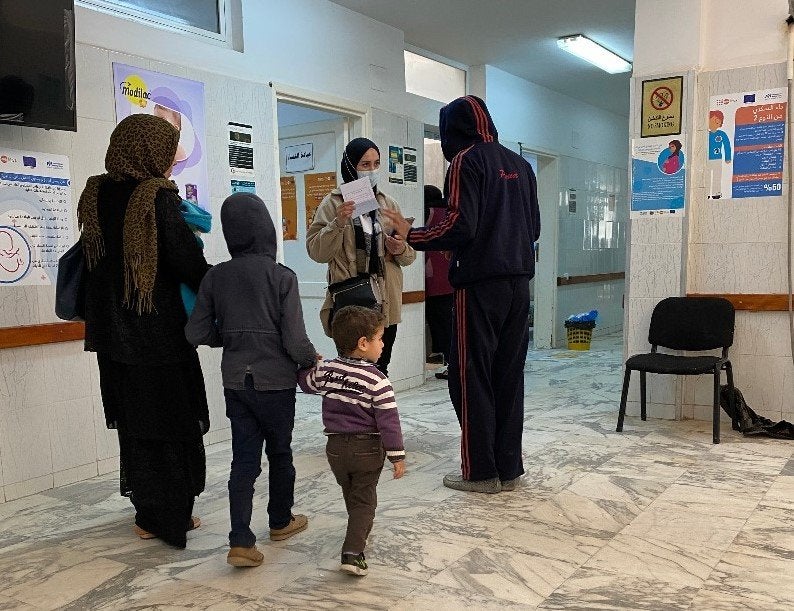
Refugees and migrants reported having previously contended with severe barriers such as discrimination in accessing healthcare services. Other setbacks included a lack of qualified SRH workforce and inadequate skill mix, shortages in medicines and medical equipment, and mismanagement of medical supplies and security issues, all of which were putting extra health and associated financial burdens and pressures on vulnerable communities. Against this backdrop, UNFPA partnered with IMC to identify government health facilities that would enhance provision of safe and timely access to comprehensive integrated GBV and SRH services for migrants and refugees.
Hopes for the future
While stepping out of the PHC building, Hawa endorses the service and treatment the facility offers her and other migrants and refugees.
“In the eight months of my pregnancy, I now feel relaxed and am looking forward to becoming a mother soon. This facility has been a remarkable support for me and my family. Many women from migrant and refugee communities are coming to this PHC and getting excellent care and treatment. This has brought us many hopes for a better future.”
EUTF support yielding results
The medical facilities and services provided at Alqadsia PHC are part of a programme designed to continue to support interventions for vulnerable migrants, refugees and their host communities under the aegis of the European Union Emergency Trust Fund (EUTF) in Libya.
The overall objective of the programme is to strengthen protection and the resilience of vulnerable migrants and migrants at risk, refugees and host communities, including IDPs in Libya. It also aims to support efforts to improve migration management along the migration routes in the country. This includes basic services such as health, psycho-social support, as well as specialized protection services like integrated sexual and reproductive health (SRH) and GBV prevention and response services.
In 2020, with the support of EUTF, 4,878 people, including 4,444 women, 454 migrants and 140 IDPs, were provided with essential reproductive, maternal health services through mobile medical teams deployed in support of three primary healthcare centres in Tripoli and Sabha.
